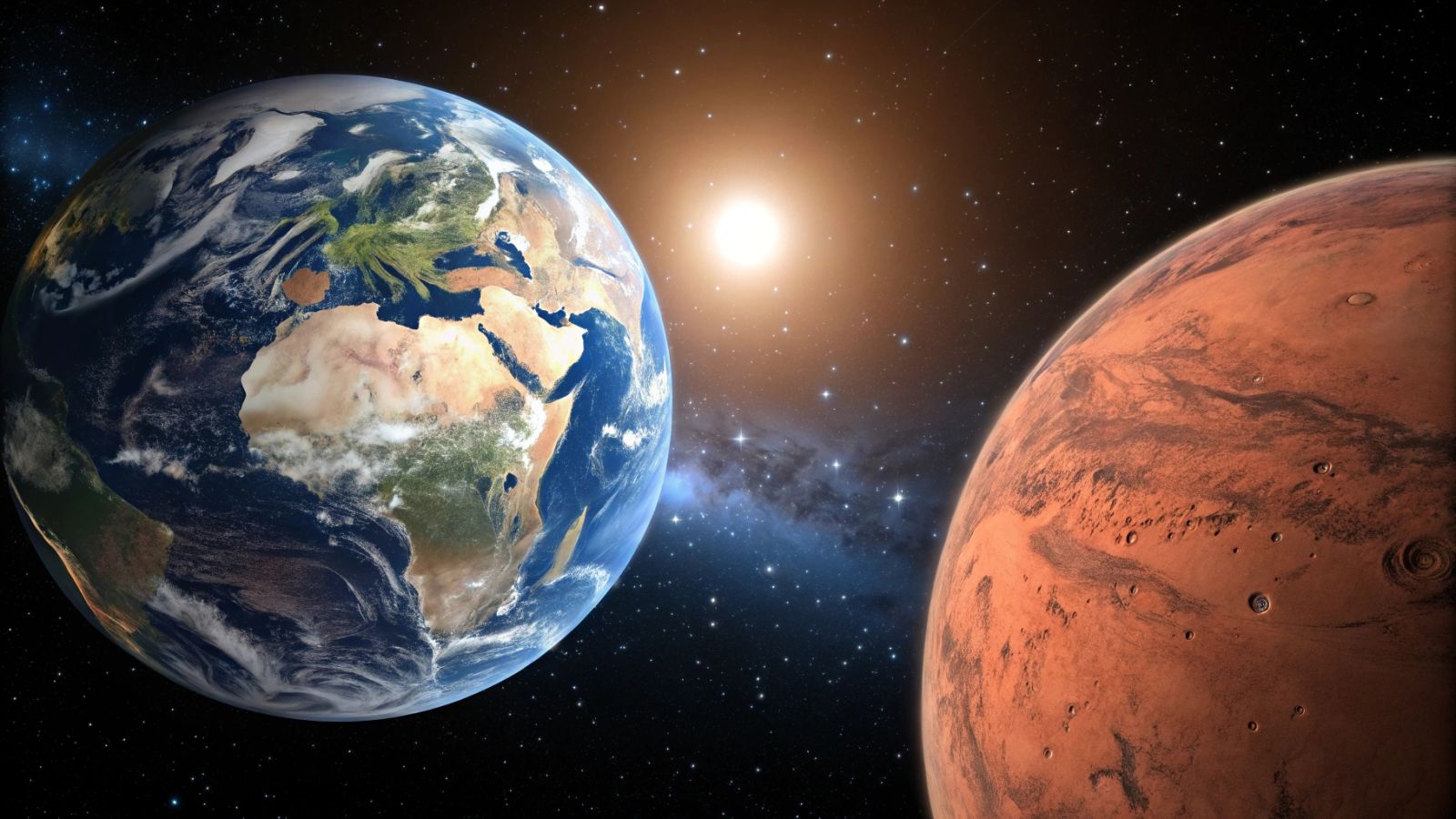Follow us on Google News (click on ☆)
On Earth, a delicate balance between CO₂ absorption and release helps regulate the climate. Atmospheric carbon is captured by oceans and sedimentary rocks like limestone. But unlike Mars, our planet recycles this carbon through volcanism, which regularly reinjects it into the air. This cycle stabilizes temperatures over the long term.

The deadly carbon trap on Mars
On Mars, CO₂ was captured by rocks, but no mechanism returned it to the atmosphere. When liquid water interacted with carbon dioxide, it formed carbonates, permanently trapping carbon in the ground. Without significant volcanic activity to release this CO₂ again, the greenhouse effect collapsed.
Earth, however, experiences frequent eruptions that release CO₂, offsetting its absorption by rocks. Even after extreme glaciation episodes like "Snowball Earth," volcanism allowed a return to temperate conditions. Mars, on the other hand, wasn't so lucky: its volcanism died out billions of years ago.
A fatal lack of regulation
The difference lies in the internal dynamics of the two planets. Earth has active plate tectonics and a magma-rich mantle, fueling constant volcanism. Mars, smaller and colder, saw its geological activity decline rapidly, sealing its fate.
Without this carbon recycling, any wet period on Mars was doomed to end in irreversible cooling. Models suggest these habitable phases never lasted more than a few million years, while Earth provided much longer climate stability—one reason life could develop sustainably here.